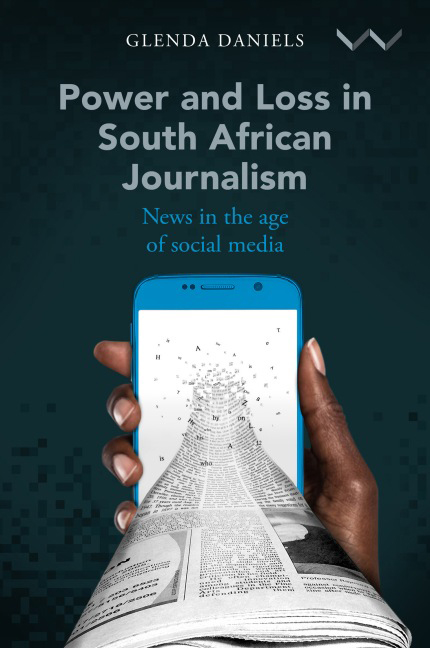Book contents
- Frontmatter
- Dedication
- Contents
- Tables and Figures
- Preface
- Acknowledgements
- Acronyms and Abbreviations
- 1 Power and Subjection in the Media Landscape
- 2 The Media, the State and Zuma’s ANC
- 3 ‘Zupta’: Power and Loss in Investigative Journalism
- 4 The Job Loss Tsunami
- 5 Going Online When You’re Offline: The Case of Community Media
- 6 The Anti-Feminist Backlash, the Glass Ceiling and Online Trolls
- 7 Decolonial ‘Green Shoots’
- 8 Power, Loss and Reimagining Journalism
- Epilogue
- Appendices
- Appendix A Press Code of Ethics and Conduct for South African Print and Online Media (effective from 1 January 2016)
- Appendix B amaBhungane Stories in the Past Two or Three Years
- Notes
- Glossary
- Bibliography
- Index
3 - ‘Zupta’: Power and Loss in Investigative Journalism
Published online by Cambridge University Press: 10 September 2020
- Frontmatter
- Dedication
- Contents
- Tables and Figures
- Preface
- Acknowledgements
- Acronyms and Abbreviations
- 1 Power and Subjection in the Media Landscape
- 2 The Media, the State and Zuma’s ANC
- 3 ‘Zupta’: Power and Loss in Investigative Journalism
- 4 The Job Loss Tsunami
- 5 Going Online When You’re Offline: The Case of Community Media
- 6 The Anti-Feminist Backlash, the Glass Ceiling and Online Trolls
- 7 Decolonial ‘Green Shoots’
- 8 Power, Loss and Reimagining Journalism
- Epilogue
- Appendices
- Appendix A Press Code of Ethics and Conduct for South African Print and Online Media (effective from 1 January 2016)
- Appendix B amaBhungane Stories in the Past Two or Three Years
- Notes
- Glossary
- Bibliography
- Index
Summary
Humanity is waiting for something other from us than such an imitation, which would be an almost obscene caricature.
Frantz Fanon, The Wretched of the EarthFanon slated African leaders for imitating the West with their colonial greed, the formerly oppressed imitating their oppressors. He argued that we must not desire to ‘catch up with Europe’ but, rather, that we strive to find a different path to advance humanity. The Zuma era showed the imitation of apartheid's corruption. In this chapter I show the excesses of Zuma's corrupt leadership, a stolen decade from the country's democracy, if you like, and a huge loss for the country. The chapter covers the contribution investigative journalism has made to exposing corruption – but also the crisis that journalism faces. The last part of the chapter gives voice to journalists themselves.
Sometimes journalists are named and shamed, and sometimes they turn their backs, in misrecognition. Following theories of Fanon, and borrowing and simplifying concepts of naming and shaming from Louis Althusser, Michel Foucault and Judith Butler, in the second part of this chapter I focus on what was referred to as ‘media capture’ after the Sunday Times, in 2018, retracted many of its investigative pieces, for example, the South African Revenue Service (SARS) ‘rogue unit’ stories, the ‘illegal Zimbabwe renditions’ and the ‘Cato Manor death squad’ stories. The newspaper was called out and shamed in the public sphere. South African National Editors’ Forum (Sanef) launched an inquiry into ‘media capture’, which would include the failings of the Sunday Times as the impetus for such an inquiry. But the gaze in this chapter is not on the details of what investigative journalism found about Zuma and his Indian businessmen cronies, the Guptas, as all of that is already out in the public domain.
The Althusserian notion of interpellation, where the subject is constituted through hailing, naming, shaming, and Fanonian misrecognition is used here to apply to investigative journalism. It recalls the attempted shaming by the Zuma government: hey you, investigators (mainly white), why do you focus only on corruption in the public sector (mainly black, therefore you are racist)? The Sunday Times was hailed and shamed and the terms of the interpellation appeared to be accepted.
- Type
- Chapter
- Information
- Power and Loss in South African JournalismNews in the Age of Social Media, pp. 41 - 62Publisher: Wits University PressPrint publication year: 2020



